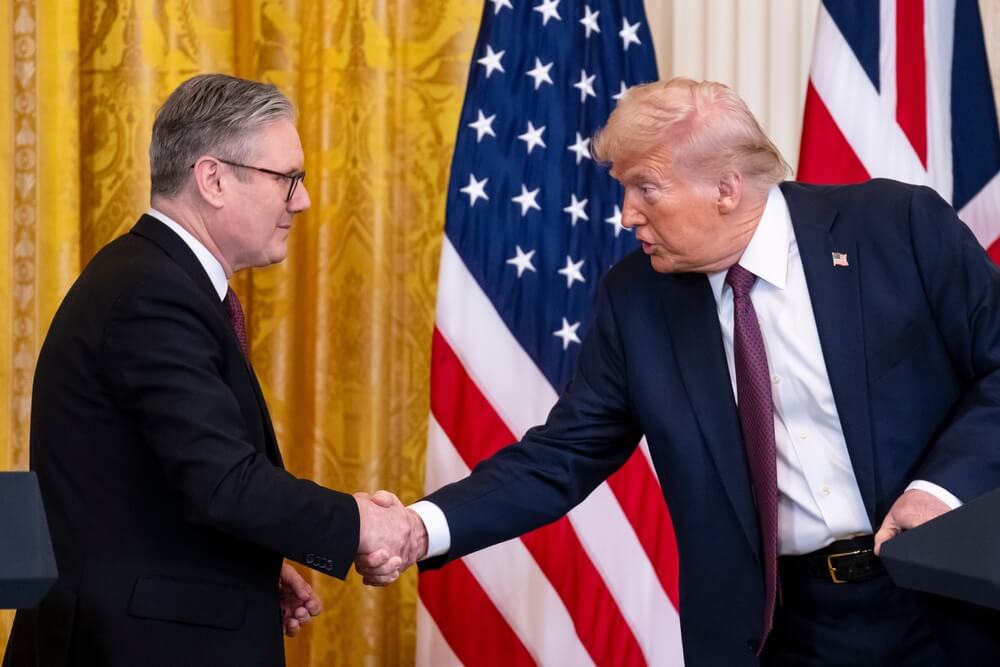Britain’s Prime Minister Keir Starmer voiced his support over the weekend for the U.S. airstrikes against Iran’s nuclear facilities, urging Tehran to return to diplomatic negotiations.
According to media sources, Starmer described Iran’s nuclear ambitions as a “grave threat to international security” and emphasized the urgent need to reduce regional tensions to prevent global escalation.
On Sunday, June 22, 2025, Starmer acknowledged that the U.S. strikes, carried out overnight under President Donald Trump, had heightened the risk of conflict spreading beyond the Middle East.
“It is important that we now de-escalate the situation, stabilize the region and get the parties back around the table to negotiate,” he told national broadcasters.
Trump announced earlier that the U.S. had joined Israel in bombing three Iranian nuclear sites, saying the military operation was aimed squarely at Iran’s nuclear capabilities.
Notably, the UK did not participate in the attacks, and U.S. officials reportedly did not seek British involvement, according to The Guardian.
In response, Starmer swiftly convened a Cobra emergency meeting in London on Sunday afternoon after discussions with the Sultan of Oman and the King of Jordan.
A spokesperson from Number 10 framed the outcome: “All parties agreed that escalation of the conflict is in no one’s interest.”
Just days earlier at the G7 summit, Starmer expressed no awareness that the U.S. was planning to carry out strikes.
However, he did warn at that time of a “real risk of escalation” and emphasized that diplomacy remained the preferred path: “There had been several rounds of discussions with Washington and that, to me, is the way to resolve this issue.”
UK Officials Emphasize Nuclear Deterrent, Not Regime Change
Starmer reiterated on Sunday that Iran must never be allowed to obtain a nuclear weapon, describing America’s military response as aimed at containing that risk.
“Iran’s nuclear programme is a grave threat to international security.
Iran can never be allowed to develop a nuclear weapon, and the U.S. has taken action to alleviate that threat,” he explained, calling for renewed diplomacy.
Business Secretary Jonathan Reynolds told Sky News that Britain had not been approached to use its Diego Garcia base in the Indian Ocean.
“We support the prevention of Iran obtaining a nuclear weapon,” he said.
“We had proposed a diplomatic course of action… but the Iranians had rejected that.”
Reynolds acknowledged that the UK public may be anxious following news of the bombings, and stressed that although Britain had not taken part, extensive contingency planning had been underway.
He emphasized that the government perceived the Iranian regime as a “very active threat” to national security but stressed that regime change was not the objective of the strikes.
“This is very different to what we saw with the invasion of Iraq,” Reynolds told the BBC.
He added that long-term stability in the Middle East depends on Tehran’s acknowledgment that nuclear weapons are unacceptable to both regional and global powers.
Tehran, Jerusalem, Washington React
Iran’s UK ambassador, Seyed Ali Mousavi, stated that Tehran was assessing “the quantity and quality” of its response, insisting that any action would align with its sovereign rights.
When pressed if Iran would cease missile strikes on Israel, he remained tight-lipped, asserting only that Iran would “defend itself.”
Regarding claims—endorsed by MI5—that Iran had plotted over 20 attacks on UK soil, Mousavi disputed such allegations as “misinformation.”
Israel’s President Isaac Herzog commented that Israeli forces had deliberately stepped aside and permitted the U.S. to lead the strike.
He affirmed that the goal was to neutralize advanced nuclear facilities rather than target Iranian civilians.
From Washington, President Trump warned during a White House address that further strikes could follow if Iran retaliated.
“There will either be peace or there will be tragedy for Iran,” he proclaimed.
UK Diplomacy in Action
Foreign Secretary David Lammy traveled to Washington and Geneva in recent days to press the case for renewed diplomatic engagement, including discussions with Senator Marco Rubio and European counterparts.
Lammy has urged restraint and encouraged dialogue alongside allies, signaling that Britain remains focused on defusing tensions rather than taking military sides.
Conservative MP Kemi Badenoch praised the U.S. action as a decisive strike against a regime she accused of sponsoring global terror and directly threatening the UK.
She argued the British government should stand firmly with both the U.S. and Israel in addressing what she described as an Iranian threat.
Regional Fallout: Iran’s Missile Retaliation
In response to the U.S. strike, Iran launched a missile barrage at Israel overnight.
The retaliatory attack underscores how rapidly the situation could spiral into broader hostilities.
What Comes Next?
With Iran under international pressure to rejoin diplomacy, and the UK pushing for de-escalation, all eyes are on the next steps.
Whether Tehran opts for further military retaliation or chooses to re-enter talks will be pivotal.
As Starmer put it, the imperative now is to “de-escalate, stabilize, and return to negotiation” before regional conflict morphs into global crisis.







